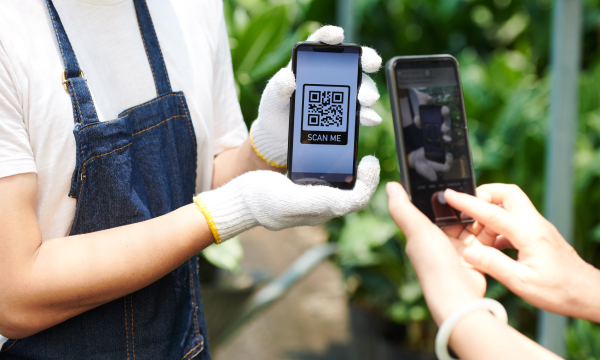Case Study


A leading public university focused on engineering, technology, and applied sciences partnered with us on this project. Known for its strong research and innovation culture, the university often works with industry partners across Europe. Here, it acted as a sponsor and collaborator, exploring how blockchain can improve trust and data sharing in agriculture.
The client needed to demonstrate that agricultural products could be reliably tracked from seeding to sale across different organisations using blockchain. The biggest challenge was combining information from various data sources, including sensors, manual inputs, and APIs, into a single secure, tamper-proof record accessible to everyone involved.
The goal was to build a blockchain-based minimum viable product (MVP) to prove that transparency, data integrity, and scalability are possible in farming. The project tested two system architectures to find the best balance of trust, performance, and cost.

We charted the project scope, selected the right tools, and established clear goals. Using Agile sprints and regular check-ins, the team ensured alignment with the research objectives.

We designed two system models and mapped how data would move between sensors, manual inputs, and APIs. This setup covered every stage of the product’s life, from seeding to market.

We built the blockchain network, created smart contracts, and developed both the REST API and front-end with QR code features. The MQTT communication standard was added to handle sensor data efficiently. Distributing data across peers with this decentralised technology reduced single-point failure risks and enhanced system resilience.

We verified data accuracy, measured system performance and environment costs, and ensured smooth communication between all modules. Both blockchain-only and hybrid setups were fully tested and validated before delivery to the client.

We deployed the MVP in the client’s environment, delivered full documentation, and supported the client’s team in preparing for internal testing and future scaling.
Tracked products completely from seeding to sale.
Successfully tested blockchain and hybrid solutions.
All records use verifiable blockchain hashes.
Integrated data from sensors, QR codes, and APIs.

Lorem ipsum dolor sit amet, consectetur adipiscing elit, sed do eiusmod tempor incididunt ut labore et dolore magna aliqua. Lorem ipsum dolor sit amet, consectetur adipiscing elit, sed do eiusmod tempor incididunt ut labore et dolore magna aliqua.

Lorem ipsum dolor sit amet, consectetur adipiscing elit, sed do eiusmod tempor incididunt ut labore et dolore magna aliqua. Lorem ipsum dolor sit amet, consectetur adipiscing elit, sed do eiusmod tempor incididunt ut labore et dolore magna aliqua.

Lorem ipsum dolor sit amet, consectetur adipiscing elit, sed do eiusmod tempor incididunt ut labore et dolore magna aliqua. Lorem ipsum dolor sit amet, consectetur adipiscing elit, sed do eiusmod tempor incididunt ut labore et dolore magna aliqua.
Contact Espeo Software to start your journey toward secure, scalable blockchain solutions for your business.